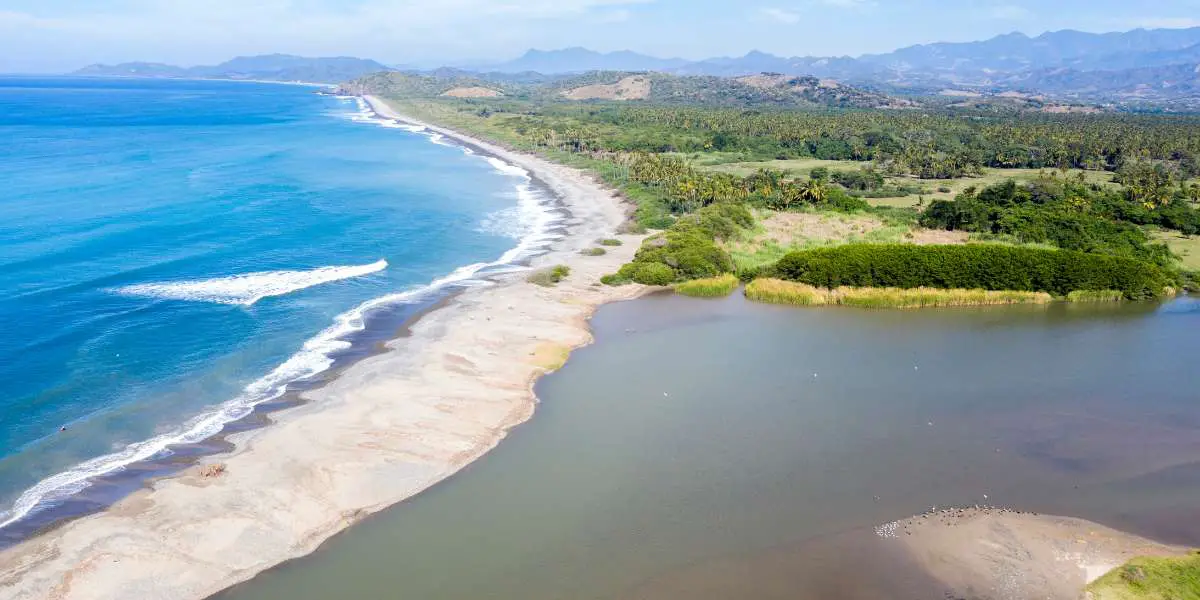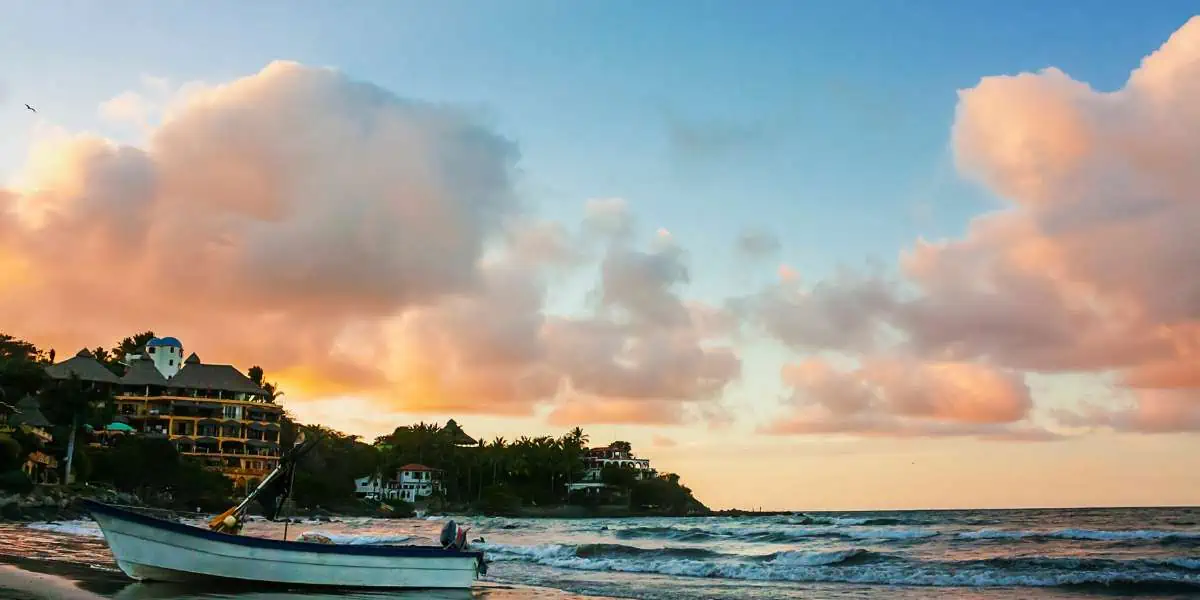So, you’ve been planning on taking a big vacation and decided on Thailand, but everyone says that you should make sure to go during Songkran. But what is Songkran? And when is it? And, most important of all, why is everyone so adamant that you plan your trip around it?
What is the Songkran Festival? And why does it look so fun? Songkran Festival is the three days long Thai traditional New Year celebration. It is rooted in the Buddhist calendar and follows many Buddhist traditions. The festival is also known as the “ultimate water fight” because the highlight of the three-day celebration is water fights throughout the streets of the major cities.
If you plan to travel to Thailand during Songkran, there is plenty to learn, so you don’t miss anything exciting, there is a lot to see and do, and also get the most out of the experience by knowing the wheres and whys.
What Does Songkran Mean?
The word Songkran comes from Sanskrit for astrological passage. It is translated to mean transformation or change. Songkran runs from April 13 to April 15 every year. These dates coincide with the rising of Aries or when the sun moves from Pisces to Aries, thus astrological passage. But, the dates also coincide with the Buddist new year, the countries largest religion.
The festival takes place over three days. The three days are:
- Maha Songkran: This is April 13, the day that the sun moves into Aries. It is the last day of the old year. There are many processions of Buddha images throughout the country. It is also a tradition that everyone cleans out there house on this day in preparation for the new year.
- Wan Nao: This is April 14. It is the transitional day between the old and the new. It is New Years’ Eve. On this day, many Buddhists go to their temples and build small sandcastles that resemble Buddhist temples called sand chedis.
- Wan Thaloeng Sok: This is April 15. In Thai, the name means to begin a new era. It is New Years’ Day itself. Amongst many types of celebration, this is a day to leave offerings at the temple.
The Water Fights
Water has always played an important role in the Thai New Year. The people of Thailand have given water many meanings and deep significance. They believe that it:
- Cleanses And Brings Change: This seems obvious, but water is used to wash, and as the new year comes around, it can both literally and figuratively remove the old and allow for new to come in. This belief has been practiced during many of the processions of the Buddha images, where people have traditionally poured water mixed with Thai fragrance on the idols.
- Brings Good Luck: People have also always participated in a ritual where people pour water on senior Buddhist monks. They believe that it will wash away bad luck and bring them good luck in the New Year.
- Brings Rainfall: Rain is important to the Thai people, and, in some areas of the country, people have splashed themselves with water during Songkran in order to bring rainfall in the coming year.
- Brings Fertility: They also believe that water will bring fertility, which is also why they started splashing themselves.
At some point in history, people started to collect the water that was poured over the Buddha images and used to cleanse the elders of the village and family members by pouring it over their shoulders. The water was considered holy because of its original purposes. This practice slowly evolved into the countrywide water fights that we see today.
Depending on what city you are visiting, the water fights play out in different ways. If you venture into the countryside, you may not see any water fighting at all as they tend to be more traditional and religious with their celebrations.
Things to Look for in Some of the County’s Major Cities
Chiang Mai
Chiang Mai is the northern capital of Thailand. Although they do not hold the biggest water fights, it is considered by many to be the best. The old city is surrounded by a moat that serves as a filling station for all the combatants.
The weapon of choice in most other cities is a water gun, but in Chian Mai, it is a bucket. People fill the buckets by lowering them into the moat with long pieces of rope. They then travel the roads encasing the square city center in pick up trucks and mopeds and dump the water on anyone they come across. Sometimes ice is added to the bucket to give the splashdown a little more kick.
While the official celebration of Songkran is three days, water fights in Chiang Mai tend to start at four days, and can sometimes run for days more.
Bangkok
The capital of Thailand draws the biggest crowds in the country for their water fights. Whole streets are closed down from traffic as natives and tourists alike fill up anything that will spray water and douse each other. There are two major areas of the city if you are looking for the wettest Songkran experience.
The entire length of Silom is usually packed to the gills on two levels of wet, watery fun. Silom, usually know for Patpong, is filled with the largest and wildest crowd during Songkran. Firetrucks line up at intersections to add their fire hoses to the fun.
Khao San Road is another Bangcock Songkran hotspot. Just like in Silom, the whole length of the road is closed off and turned into an all-out water war. Police checkpoints at both ends of the street try to keep things safe by confiscating bottles, cans, and anything that could be of danger before you enter the wet area. DJs set up along the street inside plastic shelters to add music and dancing to the wet wild fun.
Phuket
If you find yourself in Phuket, head out to Patong’s Bangala Road for the most frenzied Songkran water fights on the island. Beach Road is a close second. In both places, you can enjoy fun competitions like sandcastle making, beauty contests, and live music to go along with the water throwing that goes on for days.
Respect The Culture
While it is welcome and expected that anyone in town joins in on the water fighting, it is still important for tourists to respect the Thai culture. As wet as you will get from all the water flying around, it is not okay for women to wear bikinis or men to shed their shirts. So make sure to walk the Songkran streets in your everyday tourist attire.
What If I Don’t Want To Get Wet?
Songkran is not just about the water fights, and although it is hard to walk the streets of Bangkok or Chiang Mai without getting wet, there are plenty of things to see and do that do not include someone dumping a bucket of ice water on you.
- The Opening Ceremony: If you are in Bangkok, you should be able to watch the opening ceremony without worrying about getting wet. If for nothing else, it will give you a chance to see one of the most famous Buddhist temples in Thailand, Wat Pho. The ceremony is held here, and when it is over, you can check out the gold-plated Reclining Buddha that is housed there.
- Build Sand Pagodas: Bringing sand into a Buddhist temple during Songkran is a way of making merit. In many of the famous temples, people use the sand to build pagodas and decorate them with flags and flowers. You are welcome to try your hand or enjoy the wonderful works of art.
- Miss Songkran Beauty Pageant: Many of the local spots outside the big cities hold beauty pageants during the festival. Many of the pageants end with impressive parades through the towns. It will require you to travel outside the city and do a little local research, but its a great way to discover the local beauty of the country.
- Visit Sanam Luang: Located in front of the Grand Palace in Bangkok, Sanam Luang is the site of performances and ceremonies that highlight Thai culture and values. You can watch shadow puppetry, Muay Thai demonstrations, or participate in mask dancing.
- Tha Phae Gate: If you are in Chian Mai, you could visit Tha Phae Gate, where there are many stages set up for music acts and The Miss Songkran pageant. There are also open-air markets so you can enjoy all the local fare. During the day, it will be wet here, but as the sun goes down, the water throwing tends to stop, and the partying keeps going.
- Find A Saba Game: Saba is a traditional Thai game that’s intent is to get single men and women to meet each other. Created in a time when the opposite sexes were not allowed to commingle, it is now a fun example of the old tradition.
No matter what your idea of fun is, Songkran will give you a unique Thai experience that will make your vacation something to talk about for years to come.





